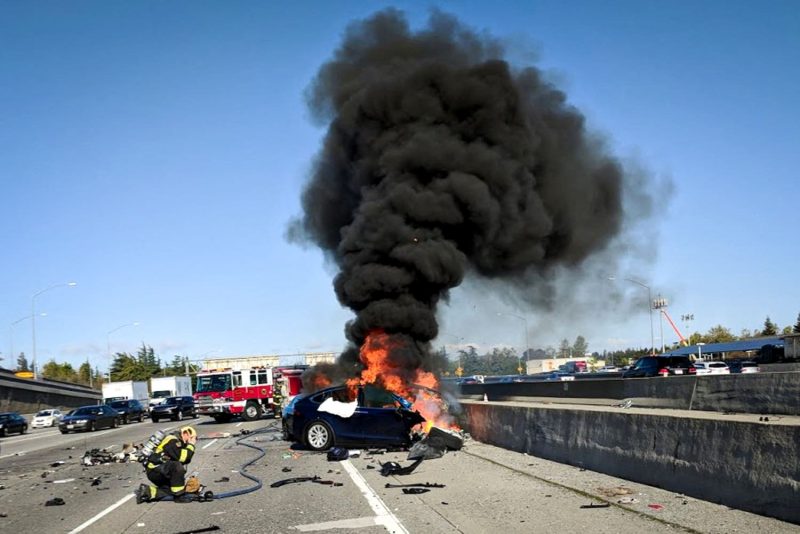Tesla Settles Lawsuit Over Autopilot Crash That Killed Apple Engineer
The technology-driven world of self-driving cars has been fraught with both promise and peril. One such incident that starkly highlights the dangers associated with autonomous driving technology involved a fatal crash in March 2018, where a Tesla Model X on Autopilot mode collided with a concrete highway median in Mountain View, California, leading to the tragic death of Apple engineer Walter Huang.
The aftermath of this devastating crash led to a legal battle between Tesla and the family of the deceased engineer. However, recent developments suggest a bittersweet resolution to this contentious issue. Tesla has chosen to settle the lawsuit, signaling a nuanced conclusion to a case that has implications beyond mere financial compensations.
The settlement reached between Tesla and Huang’s family articulates a significant shift in the dynamics of responsibility and liability in the realm of autonomous driving. While the details of the settlement remain confidential, it is imperative to consider the broader implications of this outcome.
One of the critical factors that this settlement brings to the fore is the inherent complexities and uncertainties surrounding the legal liabilities in autonomous driving accidents. As self-driving technology continues to advance, questions of accountability, oversight, and regulation become paramount. The resolution of this case serves as a poignant reminder that the intersection of technology and law requires meticulous navigation.
Furthermore, the tragic loss of Walter Huang underscores the profound ethical dimensions that underpin the development and deployment of autonomous vehicles. As we hurtle towards a future where machines make life-altering decisions, the stakes are higher than ever. The need for stringent safety measures, transparent communication, and ethical considerations is non-negotiable.
Another aspect that this settlement accentuates is the delicate balance between innovation and safety in the automotive industry. As companies strive to push the boundaries of technological progress, they must also acknowledge the human cost associated with unforeseen failures. The case of Walter Huang serves as a cautionary tale, reminding industry leaders and policymakers alike of the indispensability of ethical foresight and responsible innovation.
In conclusion, the resolution of the lawsuit between Tesla and the family of Walter Huang resonates with broader themes of accountability, ethics, and innovation in the era of autonomous driving. While this settlement may mark the end of a legal battle, it also heralds the beginning of a more nuanced conversation surrounding the future of self-driving technology. As we reflect on this tragic incident, we are impelled to tread carefully, ensuring that the pursuit of progress does not come at the expense of human lives.


























